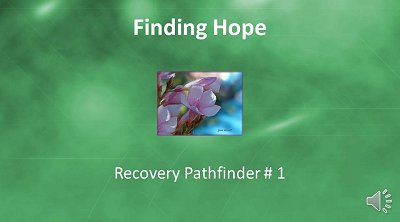
Wanting to eat when not physically hungry:
I have a problem with emotional eating. I have the urge to taste almost any food that is around, and to eat too much of the “comfort foods” that I love. Sometimes when I am upset, I have been known to have a “binge” by eating way too much of something. In the past, I have eaten several servings at a time of cereal, chips, pizza, candy, or cookies. I used to take a bag of chocolate chips, out of the freezer to eat.
But I can control it better now that I recognize what is happening and I cope with the problems that are making me feel like bingeing. I also avoid keeping “trigger foods” in the house. Those strategies helped me to lose weight and to stay at a healthier weight for several years.
This Emotional Eating Handout describes what I learned about how your mood can affect what you eat.
Food and feelings go together:
- We tend to link food with enjoyment, affection, and nurturing
- Food is usually part of emotion-filled events, either happy or unhappy ones
- Eating for comfort is a common behavior that comes from a deep connection within us
- Some people eat in response to emotions rather than hunger
- If you are overweight, ask yourself if emotional eating is an issue for you
Mindfulness skills can develop ways to cope:
- Cope better with the daily ups and downs of daily life
- Recognize and avoid black-and-white thinking (where things and actions are looked at as being good or bad, right or wrong)
- Avoid thinking that things should be perfect
- Use coping skills for self-control when dealing with food temptations and relapses
- Get the help you need for problem-solving
Mood and weight changes:
-
- Food choices affect mood in positive or negative ways
- Learn how to eat healthier to improve your mood
- Hormones affect mood – Examples are cortisol (from adrenal glands) or estrogen (a female sex hormone)
For a more wide-ranging discussion of nutrition, also see https://healthvista.net/wp-content/uploads/2015/05/ExploringNutritionIcebreakersDiscussionGuide.pdf
“Triggers” for emotional eating:
- Recognize and avoid any “triggers” you have
- A trigger food can set off a “binge” of eating, no matter what your mood is – Examples include ice cream, cookies, nuts, potato chips
- Trigger foods are not the same as favorite foods, comfort foods, or food cravings
- A trigger feeling is an emotion, good or bad, that leads to overeating – Any available food will do
- A trigger environment is a specific place or setting that leads to overeating – Examples include movie theaters, buffet restaurants, sporting events or social gatherings
- Eating triggers do happen – They are a sign to stop and think about how you can avoid them from happening in the future
Understand the connection between emotions and eating, to help you succeed in maintaining a healthy weight
Weight Watchers Research Department. (2009). Emotional eating, Mind skills for lasting weight loss, Mood and weight, and Eating triggers retrieved from www.weightwatchers.com
Mindfulness instead of emotional eating:
People tend to eat mindlessly most of the time. When “chowing down,” we are usually thinking about other things and not really tasting our food.
We often respond to the sight of food with the impulse to devour it – whether or not we are actually hungry.
We miss the subtle feelings of fullness if we don’t slow down to finish chewing and swallowing before we pick up the next bite
It takes 20 minutes for your body to signal its fullness. By eating fast, you are likely to overeat.
Try eating mindfully by savoring the sight, smell, texture, the color and light on the food, the connection to the outside world, the taste and feel of the food as you eat it slowly.
In mindfulness retreats, the meals are usually served in silence. That way, you can think about the food and the efforts that went into growing and preparing it.
You may feel satisfied without eating as much food as you have been eating. You can practice mindful eating when you eat alone or in silence.
Siegel, R. (2010). The mindfulness solution: Everyday practices for everyday problems, p. 261-264. New York: Guilford Press
Being mindful and aware of emotional eating can really help you make healthier habits. Call a friend when you feel like bingeing. If there is something upsetting you, figure out what to do and write it down (or do it). Take a walk or do some exercises. Take a bath or shower. Get busy doing something that takes your mind off your cravings.
You can get past it if you resist for a few minutes. If you are physically satisfied and no longer hungry, push away from the table and put the food away. The urges will weaken and go away. You are more in control than you think!
Blog #6 By Mary Knutson RN, MSN for Health Vista, Inc.
Updated 5-25-20










